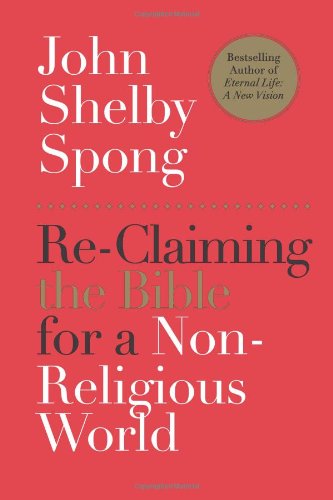Why Are Religious People (Generally) Less Intelligent? | Psychology Today
Understanding the negative relationship between IQ and religiosity
Catching up on my Xmas readings, I dived into the recent
meta-analysis on the negative correlation between IQ and
religious beliefs, which, at least in my case, makes sense: I am highly religious but not very intelligent… or is it the other way around? [Sorry, I’m not smart enough to figure it out].
The paper has very few methodological weaknesses, but as we know correlation does not mean causation – though correlations
do have causes.
The key question, then, is
why religious people are generally less intelligent. And the authors did not
shy away from the answer, offering three compelling explanations:
(1) Intelligent people are generally more analytical and data-driven; formal religions are the antithesis: they are empirically fluffy and their claims are often in direct contradiction with scientific evidence, unless they are interpreted metaphorically – but maybe intelligent people are not that keen on metaphor. Another way of putting it is that people with a high IQ are more likely to have faith in science, which isn’t religion’s best friends (yes, yes, I do know about Einstein’s quotes).
(2) Intelligent people are less likely to conform, and, in most societies, religiosity is closer to the norm than atheism is. Although this interpretation is based on extrapolation, it still makes sense: first, in most societies the number of religious people outnumbers the number of atheists or agnostics people; and second, higher-IQ people tend to be less
gullible.
(3)
Intelligence and religiosity are “functionally equivalent”, which means that they fulfil the same psychological role. Although this intriguing argument contradicts points 1 and 2, it deserves serious consideration. Humans will always crave meaning. Religion – like science and logical reasoning – provides them with a comprehensive framework or system to make meaningful interpretations of the world. At times, religion and science are in conflict; but they can also act in concert, complementing each other to answer non-falsifiable and falsifiable questions, respectively. The authors conclude that some people satisfy their desire to find meaning via religion, whereas others do so via logical, analytical, or scientific reasoning – and IQ predicts whether you are in the former or latter group.
It is noteworthy that these three explanations assume that IQ influences religiosity rather than vice-versa, which seems plausible: IQ levels remain very stable after
childhood, whereas religiosity levels keep fluctuating – childhood IQ predicts adult IQ, but childhood religiosity is a very poor predictor of adult religiosity.
However, the authors forget to consider an important possibility, which is that the relationship between IQ and religiosity could be caused by a third variable, namely
personality. Indeed, Openness to Experience, a personality dimension that predicts an individual’s propensity to display higher levels of intellectual curiosity, aesthetic sensitivity, and be driven by counter-conformist and rebellious attitudes, is positively correlated with IQ, and, like IQ, stable from an early age. Furthermore, there is also ample evidence suggesting that higher Openness may cause IQ gains in adulthood because open individuals are more likely to invest time and resources acquiring expertise and knowledge.
By the same token, it is feasible to expect open individuals to be less interested in religion. Their hungry mind makes them gravitate towards scientific or factual explanations, and artistic sensations, rather then religious dogma. This would be in line with the positive association between Openness and tolerance for ambiguity – open people can handle complexity and ambivalence – and the negative link between Openness and need for closure – open people are less likely to see the world in
black-or-white terms and are generally more comfortable with uncertainty. Since religion tends to eliminate ambiguity and uncertainty, its “utility” or psychological benefits should be greater for less than more open people, which would explain why religion appeals more to less intelligent individuals – who are generally less open. But what do the data say?
Although there are no meta-analytic studies on the joint or interactive effects of Openness and IQ on religiosity, there are plenty of studies examining the relationship between personality and religiosity. The first large-scale
review reported that Openness is negatively correlated with religious fundamentalism and formal religious adherence, albeit weakly. However, Openness was positively correlated with
spirituality and “mature religiosity”, e.g., emotionality, quest for meaning, and community, without strict adherence to formal religion. In the same study, religiosity was negatively related to Psychoticism – a trait that captures an individual’s typical levels of
self-control, law-abidingness, and
empathy. To make matters more complex, Psychoticism and Openness are positively correlated, so the relationship between personality and religiosity may not be straightforward.
It also seems plausible that different elements or
facets of Openness to Experience are differentially related to religiosity and spirituality. For example, a
study found that people’s emotional appreciation of religion was negatively related to the more rational or intellectual aspects of Openness, but positively related to artistic imagination and aesthetic sensitivity, two other facets of Openness. Furthermore, non-linear relationships between Openness and attitudes towards religion can also be expected. In particular, individuals with higher Openness may be generally more reticent to embrace formal religious beliefs – but, on the other hand, people who are extremely open would be more able to understand and tolerate individuals who hold such beliefs, even if they don’t share them. In that sense, hardcore atheism and agnosticism are as symptomatic of rigidity and narrow-mindedness as extreme religiosity, and highlight an inability to understand alternative Weltanschauungen or opposite systems of values. In any event, associations between IQ and religiosity are at least in part determined by personality traits and values. And let's not forget that there are plenty of people who are both smart and religious - as well as many individuals who are agnostic and dim.
Search for a mental health professional near you.
Search for a mental health professional near you.

